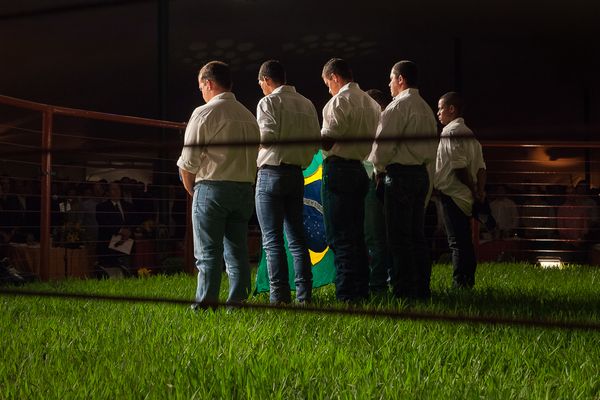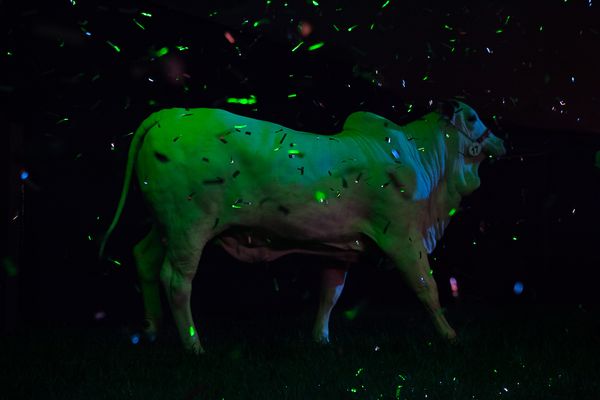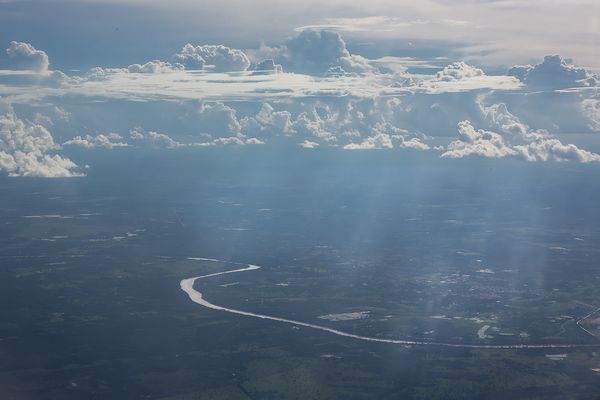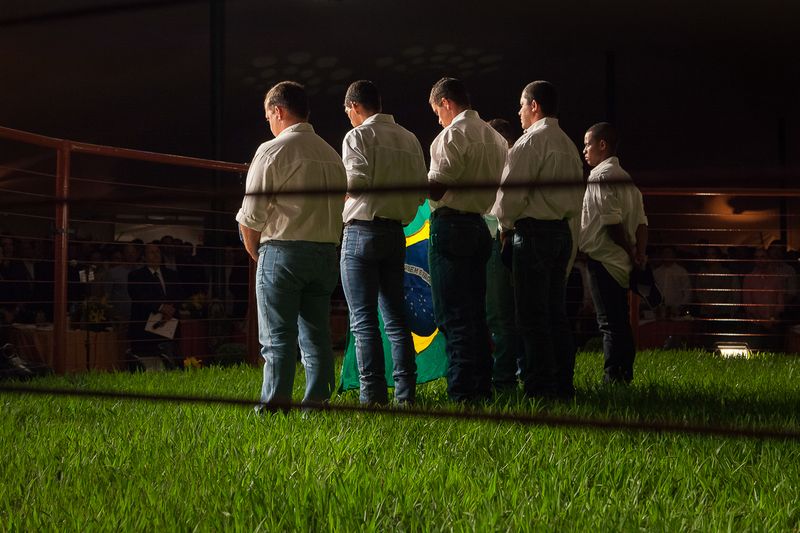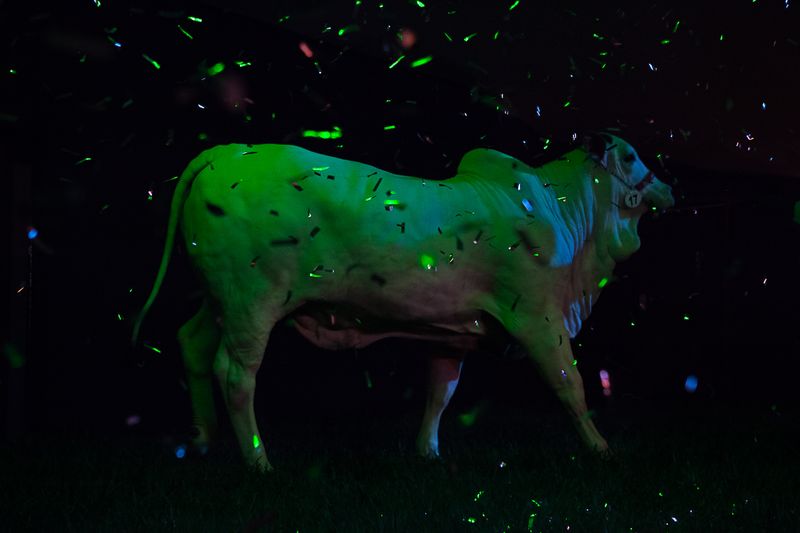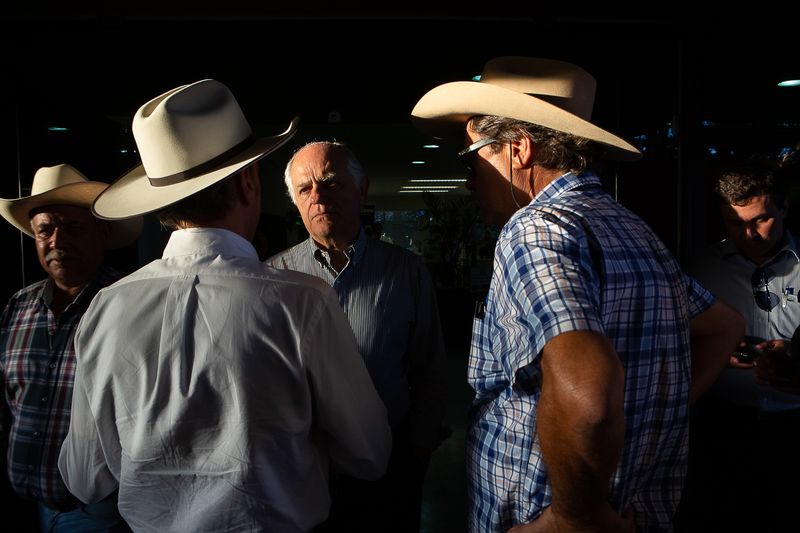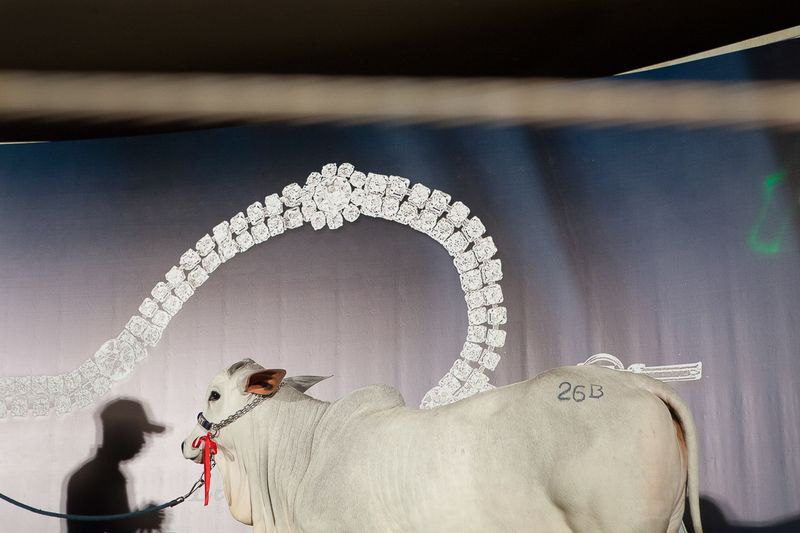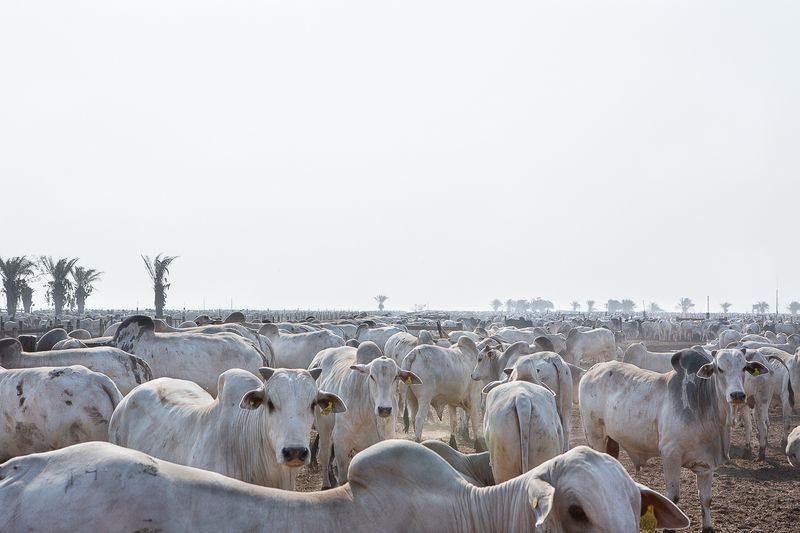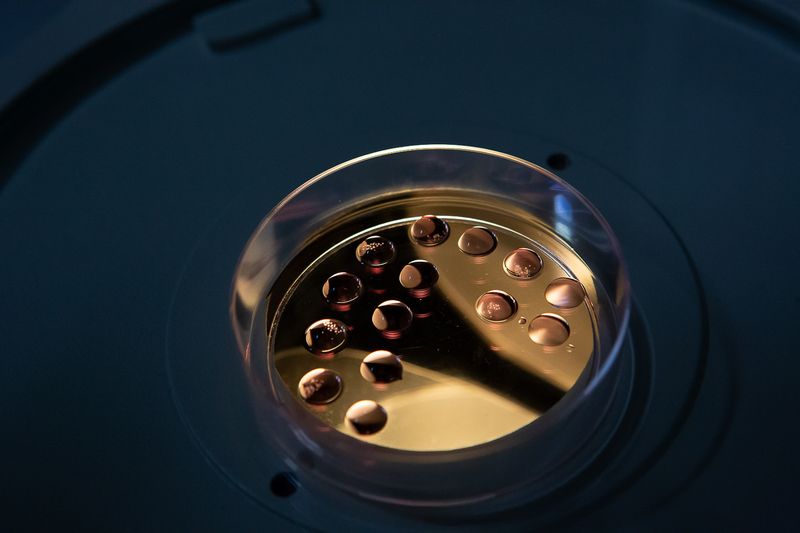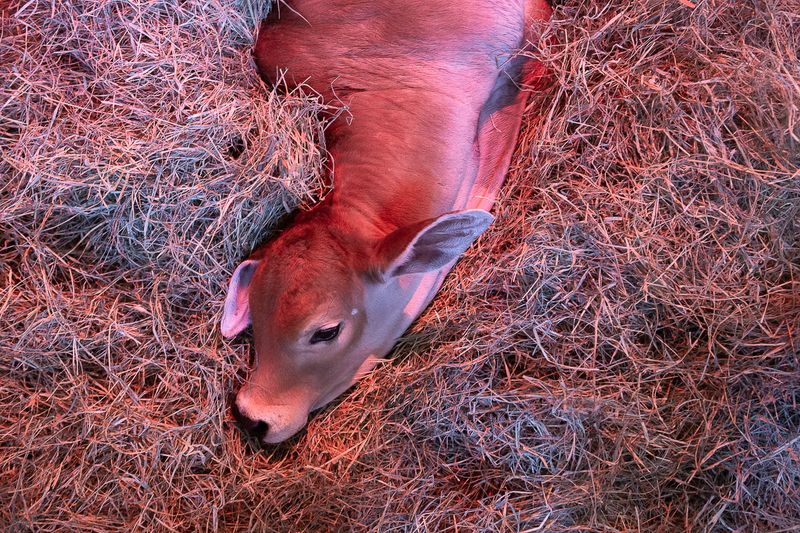A Look Inside the Brazilian Meat Industry
-
Published9 Sep 2019
-
Author
Carolina Arantes offers a comprehensive photographic survey of the mysterious and conservative universe behind the increasingly powerful, money-laden meat production industry across Brazil.
Carolina Arantes offers a comprehensive photographic survey of the mysterious and conservative universe behind the increasingly powerful, money-laden meat production industry across Brazil.
Having been a sacred animal in Hinduism for more than a thousand years, the Zebu has its own cult in a lively capitalist occidental country; admired, respected, and studied as one of the most significant commodities of international Brazilian commerce.
Brought to Brazil in the late 19th century, it has adapted to the geography in such a way that in 2012, Brazil overtook the United States and became the largest exporter of beef in the world. In 2016, the Brazilian meat market delivered US$5.5 billion in income from over 1.4 million tones of exported meat; numbers that keep growing and have kept the economy afloat during these years of crisis.
Brazil today occupies 25% of the international meat market. We can say that for every four steaks eaten in the world, one has a Brazilian origin. The rich farmers are in constant negotiations with the Brazilian Government and they have the intention of duplicating this number from now through 2025. This could mean also doubling the numbers of animals from 200 million to 400 million in the same period.
These figures are only possible due to the genetic development of the breed in the use of extremely controlled artificial insemination to get to the perfect animal. The origin of the seeds as well as that of the eggs is studied upstream. An animal of this type will nevertheless be a supplier of genetic material and a father of 600 calves destined for slaughterhouses. Some are sold for US$1 million and are cloned to maintain their genetic value. Through genetic development and cross-breeding, the rich Brazilian farmers are already preparing the next animals to be resistant to climate change.
This project offers a panorama of the Brazilian international meat business. Holy Cow is about the power and mystery behind the Brazilian meat industry and it aims to understand the characteristics of the rural Brazilian capitalists and the contemporary identity of those who decide the meat we will eat in the world.
Words and Pictures by Carolina Arantes.
Carolina Arantes is an independent Brazilian photographer based in Paris, France. She holds a Masters degree in Cultural Project Development from Barcelona University and she attended the VII Agency Masterclass in 2014 - 2015. Today she is a Canon Ambassador for France and she pursues documentary stories both in Europe and in Brazil. Find her on PHmuseum and Instagram.
---------------
This feature is part of Story of the Week, a selection of relevant projects from our community handpicked by the PHmuseum curators.
